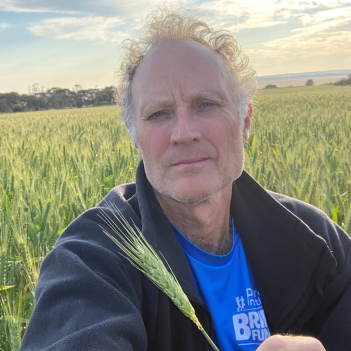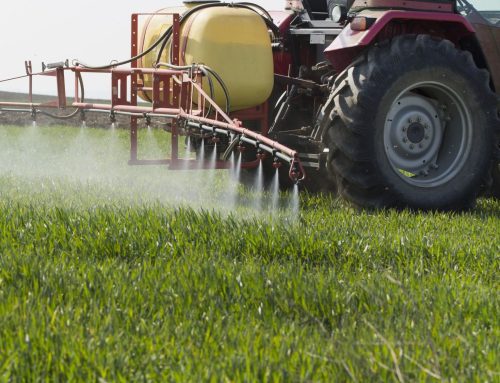In a recent interview with PAN UK, eminent Australian neurologist Dr David Blacker explains the urgent need for Australia to protect its farmers from exposure to paraquat, a very hazardous and widely used herbicide. With a ban already in place in 67 countries around the world, he expressed frustration that there has been 27 years of delay in Australia, meaning that a whole generation of farmers has already been unnecessarily put at risk. Action now could benefit many thousands of farmers in the future.
Note that paraquat is banned for use in the UK, but continues to be manufactured for export by Syngenta’s Huddersfield manufacturing facility.
[Read more about paraquat and the alternatives to paraquat here.]
Dr Blacker grew up on farms and was, unfortunately, diagnosed with Parkinson’s in 2018. He points out that it is the fastest growing neurological disease in the world with prevalence doubling in the last 25 years. Over that time strong evidence has emerged regarding the links between paraquat exposure and Parkinson’s disease. Further delay to protect farmers from the effects of paraquat would be unethical.
Unfortunately, in July 2024, the national regulatory body, the Australian Pesticides and Veterinary Medicines Authority (APVMA), failed to take medical opinion or the latest published evidence into account. Dr Blacker has since rallied the support of expert neurological and neuroscientists throughout Australia and beyond, as well as the Movement Disorders Societies in Australia and New Zealand, to call on the APVMA to change its position.

The burden of proof has been upended
Dr Blacker explains how it is falling to scientists to prove that pesticides cause undue harm to humans before any action is taken. This means that many people must be harmed and that meticulous evidence must be collected linking that harm to exposure before any action can be taken to protect people; the very opposite of the precautionary principle. By contrast, in the medical field a new drug would have to go through extensive pre-clinical testing to prove its safety before it can be used. Paraquat has been under review since 1997 with studies repeatedly linking it to serious impacts on health and yet regulators in Australia and elsewhere have continued to authorise its widespread use. This process has left many medical experts and Parkinson’s sufferers feeling unheard.
A need for collaborative solutions
Dr Blacker fears for farmers and their families on the frontline of paraquat exposure. He says that this is “an environmental and medical issue, not just an agricultural issue” and wants to see a variety of stakeholders working together to find solutions that work for farmers. He points out that the additional cost of healthcare and lost productivity associated with paraquat has been estimated at AUD $ 10bn (£5bn) per year compared to the total value of the annual grain harvest at AUD $13bn (£7.5bn). The costs of supporting farmers to move away from paraquat could be off-set by a reduction in health-related costs. He calls for stronger collaboration to tackle the risks of paraquat and other harmful pesticides, prioritizing science-based decisions to protect public health and the environment.
Further reading on paraquat and alternatives to paraquat here.
 Clinical Professor David Blacker AM, MB BS, FRACP is currently the medical director of the Perron Institute for neurological and translation science, clinical professor of Neurology at the University of Western Australia and a board member of Parkinson’s Western Australia. In 2018, he was diagnosed with Parkinson’s disease, which contributed to him retiring from clinical practice in 2023. He writes and speaks widely about his personal experience with PD, in the hope of helping others. He has been interested in the relationship between environmental toxins and Parkinson’s disease, especially since he spent several years of his childhood living in rural Western Australia near farms which continue to use paraquat.
Clinical Professor David Blacker AM, MB BS, FRACP is currently the medical director of the Perron Institute for neurological and translation science, clinical professor of Neurology at the University of Western Australia and a board member of Parkinson’s Western Australia. In 2018, he was diagnosed with Parkinson’s disease, which contributed to him retiring from clinical practice in 2023. He writes and speaks widely about his personal experience with PD, in the hope of helping others. He has been interested in the relationship between environmental toxins and Parkinson’s disease, especially since he spent several years of his childhood living in rural Western Australia near farms which continue to use paraquat.





